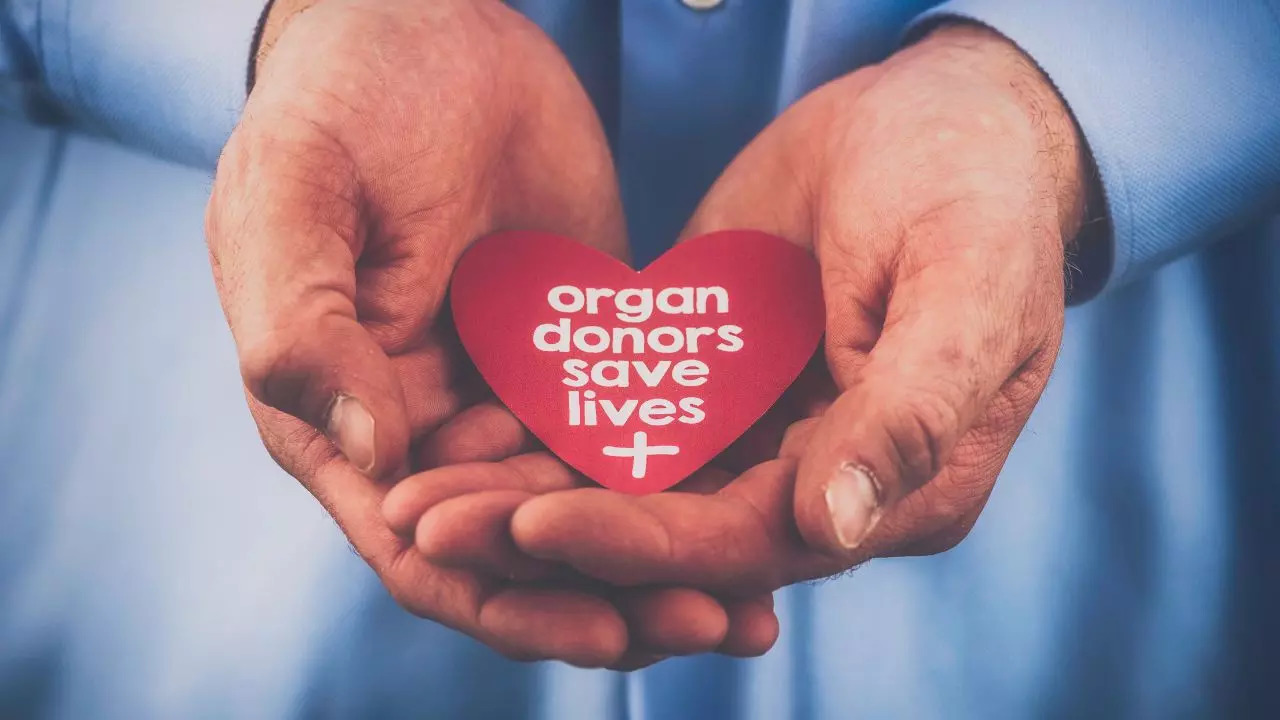Contents
World Organ Donation Day: Expert busts common misconceptions about organ donationMyth: Organ donation can only happen after brain deathMyth: Only organs can be donated, not tissuesMyth: Once a person dies, his organs are no longer usefulMyth: An organ donor can only help one personMyth: Registering as an organ donor is a very complicated processMyth: A person’s name must be on the donor register to donate organs
World Organ Donation Day: Expert busts common misconceptions about organ donation
The aim of World Organ Donation Day is to raise awareness about organ donation. Organ donation helps save the lives of people who are waiting for organ transplant. The day also encourages people to donate their organs and save someone’s life. There are many misconceptions about organ donation that prevent people from donating their organs. Read on to know the myths and facts about organ donation that can help you make an informed decision.

Doctor clears common misconceptions about organ donation
World Organ Donation Day Celebrated every year on August 13 across the world. The purpose of this day is to raise awareness organ donationThe subject of World Organ Donation Day 2024 The motto of this day is ‘Be the reason for someone’s smile today’. Organ donation helps save the lives of people who are waiting for organ transplant. This day encourages people to donate their organs and save someone’s life.
However, there are several issues Misconceptions about organ donation These myths prevent people from donating their organs. Dr Bipin Vibhute, head of the liver and multi-organ transplant department at Sahyadri Hospital in Pune, says a single donor can save up to nine lives, having a huge impact on families and communities. “Despite its life-saving potential, organ donation is often misunderstood, leading to hesitancy. As a transplant surgeon, my goal is to dispel these myths, clarify the reality of organ donation, and encourage more people to consider this powerful, life-saving act.”
Read on as Dr Vibhute clears up some common misconceptions about organ donation.
Myth: Organ donation can only happen after brain death
Fact: While brain death is the most common condition for organ donation, organs and tissues can also be donated after cardiac death, when the heart stops beating. This is called donation after circulatory death. However, in India, organ donation occurs primarily after brain death, which is confirmed by strict medical criteria to ensure the viability of organs for transplant.
Myth: Only organs can be donated, not tissues
Fact: In addition to organs such as the heart, lungs, liver, kidneys and pancreas, tissues such as corneas, skin, bones, heart valves and tendons can also be donated. Tissue donation can help improve the quality of life of recipients. For example, corneal transplants can help restore vision and skin transplants can help burn victims heal. Unlike organs, which need to be transplanted quickly, tissues can often be stored for long periods of time.
Myth: Once a person dies, his organs are no longer useful
Fact: After a person dies, many organs and tissues are still viable for organ transplantation, especially when they die in a hospital under strict and controlled management, where organ preservation can begin immediately. Tissues in the body, including corneas, skin, and bones, can be donated for use in life-saving and life-improving surgeries.
Myth: An organ donor can only help one person
Fact: Through tissue donation, one organ donor can improve the lives of up to fifty people and save up to nine lives. It is possible to transplant different organs into different recipients, such as the heart, liver, lungs, kidneys, pancreas and intestines. Tissues that can be donated include skin, bones, corneas and heart valves. In India, where the need for organs exceeds availability, the impact of even a single donor is very significant.
Myth: Registering as an organ donor is a very complicated process
Fact: Registering as an organ donor is a simple and straightforward process, facilitated by government organizations such as the National Organ and Tissue Transplant Organization (NOTTO) and the Regional Transplant Coordination Center (ZTCC). In India, you can register online through the NOTTO website, which takes just a few minutes. The ZTCC plays a key role in coordinating organ donation and transplantation at the regional level, ensuring that organs are allocated fairly and efficiently.
Myth: A person’s name must be on the donor register to donate organs
Fact: Registering as an organ donor is an important step, but it is not the only way to donate your organs. It is important to discuss your wishes with your family. After a person’s death, the concerned family will be asked about organ donation. If they know the patient’s wishes, they can make an informed decision on their behalf. Even if the person is not registered as a donor, his family can still consent to organ donation.
Dr. Vibhute says organ donation is a powerful gift that can save many lives. Unfortunately, myths and misconceptions often mislead people from considering it.
Get the latest news on Times Now along with the latest updates and top headlines from health and around the world.


